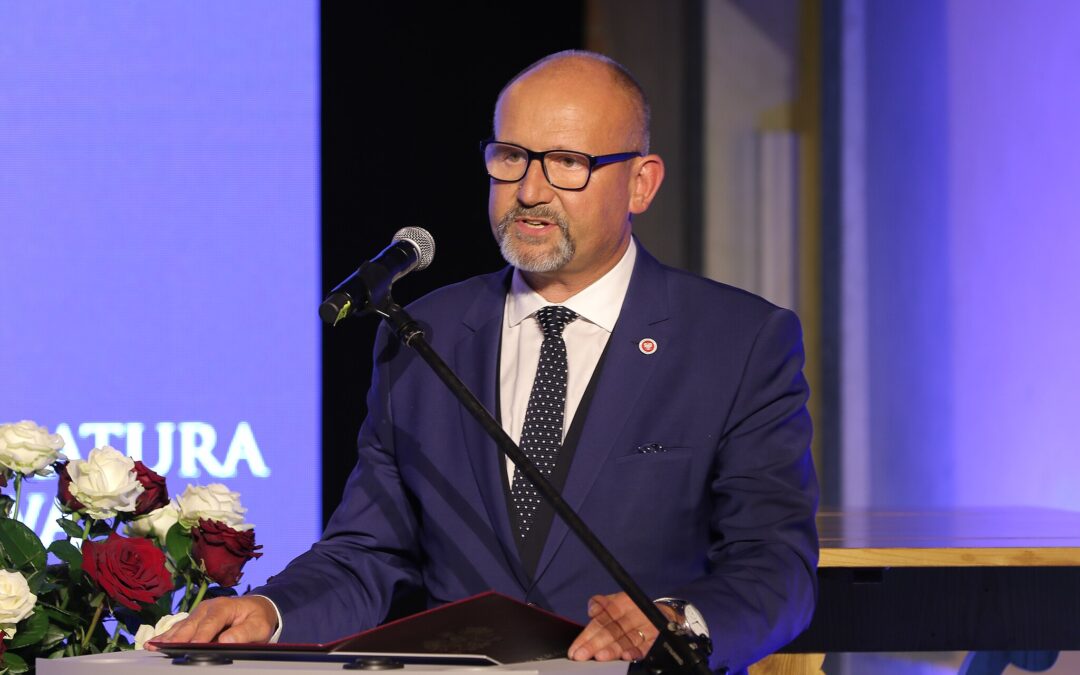Keep our news free from ads and paywalls by making a donation to support our work!

Notes from Poland is run by a small editorial team and is published by an independent, non-profit foundation that is funded through donations from our readers. We cannot do what we do without your support.
Poland’s Constitutional Tribunal (TK) has ruled that justice minister Adam Bodnar’s move to dismiss a top prosecutor, Dariusz Barski, appointed under the former Law and Justice (PiS) government was unconstitutional.
Bodnar, however, argues that the TK’s ruling is itself invalid as Barski’s complaint was inadmissible and the TK – a body still stacked with PiS nominees – appointed two judges to the case who had a conflict of interest as former PiS politicians.
Jest wyrok Trybunału Konstytucyjnego w sprawie usunięcia Dariusza Barskiego z funkcji prokuratora krajowego.https://t.co/cikOpjf4AU
— Rzeczpospolita Prawo (@RPPrawo) November 22, 2024
The dispute over the legitimacy of Barski’s appointment stems from his reinstatement in 2022 – when PiS was in power – as national prosecutor after 12 years in retirement.
After PiS was replaced in December 2023 by a new government, Bodnar, the newly appointed justice minister and prosecutor general, removed Barski from his position in January 2024, arguing that he had been illegitimately appointed in 2022.
Barski disagreed with this interpretation and filed a complaint to the TK, alleging that Bodnar’s decision violated his rights to access public service and undermined legal certainty. He argued that Bodnar acted arbitrarily by bypassing proper legal procedures and removing him without a judicial review.
In a ruling issued on Friday, the TK has upheld Barski’s complaint. It found that Bodnar’s decision created an “unjustified barrier to access to public service” and “does not meet the standard of proportionality”, according to extracts of the justification cited by the Rzeczpospolta and Gazeta Wyborcza dailies.
However, in a statement issued in response to the TK’s ruling, Bodnar’s office argued that it has no validity due to two deficiencies in the case.
First, Barski’s complaint to the TK should have been regarded as inadmissible as he had not first exhausted other legal channels to complain against his removal, such as appealing to a labour court.
Second, two of the TK judges who ruled on the case – Krystyna Pawłowicz, who chaired the panel, and Stanisław Piotrowicz, who was the rapporteur – should have been excluded because they were PiS MPs at the time the law in question – which had been used to bring Barski out of retirement – was adopted.
Bodnar used similar arguments in January when he deemed that an interim order by the TK seeking to halt Barski’s removal was defective.
Stanowisko w sprawie niedopuszczalności rozpoznania przez Trybunał Konstytucyjny skargi konstytucyjnej Dariusza Barskiego: 🔽https://t.co/4784t7Tydu
— Prokuratura (@PK_GOV_PL) November 22, 2024
The TK’s latest ruling echoes one issued in September by the Supreme Court, which also found that the reinstatement of Barski in 2022 had been carried out legally and bindingly.
However, that ruling was likewise rejected by Bodnar, who argued that it was issued by judges appointed by a judicial body rendered illegitimate by PiS’s reforms.
The dispute over Barski’s position is one of a number of clashes that have emerged over the last year between the new government and institutions and officials left over from PiS’s time in power.

Notes from Poland is run by a small editorial team and published by an independent, non-profit foundation that is funded through donations from our readers. We cannot do what we do without your support.
Main image credit: Prokuratura Krajowa (under CC BY-NC-ND 3.0 PL)

Alicja Ptak is deputy editor-in-chief of Notes from Poland and a multimedia journalist. She has written for Clean Energy Wire and The Times, and she hosts her own podcast, The Warsaw Wire, on Poland’s economy and energy sector. She previously worked for Reuters.



















